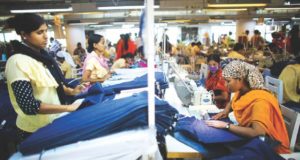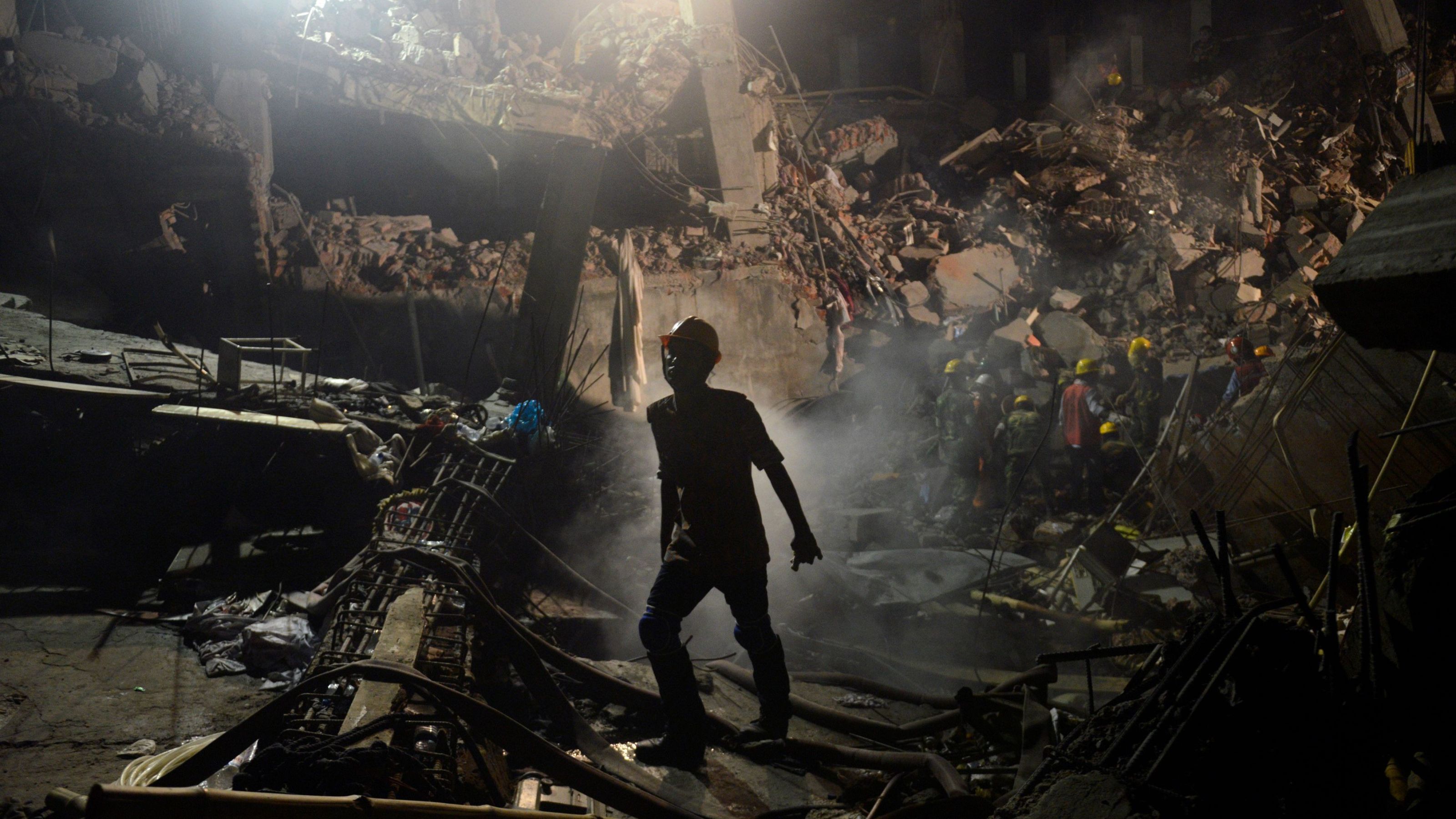Published in The Daily Star on November 30, 2017

ILO employment specialist says production should focus on both export and
domestic markets
Technology and its new advances are a reality in today’s world. One such advancement is robots with the capability to perform many human tasks. So much that robots are now being made that can replace workers.
In the coming days, technological advancement such as 3D printing and laser technology will make it easier for companies in developed economies to create production bases onsite, instead of placing bulk orders for garment in countries such as Bangladesh, China, Cambodia and Indonesia.
“This process has just really started to happen,” said Phu Huynh, employment specialist at Decent Work Technical Support Team for East and Southeast Asia and the Pacific at the International Labour Organisation.
If the process continues in its trajectory and grows and multiplies, this could automatically bring the production of garments and labour intensive sectors back into the US and the EU.
Huynh’s comments came in an interview with The Daily Star on the sidelines of a workshop last week in Bangkok.
“So, what does that mean for us in future? It means that we need to think about whether or not the production that we have is focused only on the export markets or it is also focusing as well on the local domestic consumer market.”
It is important to think about the balancing of the economic structures in place, he said, while citing Bangladesh’s garment industry, on which the country’s economy relies heavily, as a potential casualty of technological advances.
The labour economist touted the German sportswear giant Adidas as an early proponent of technology.
The company has been testing a store where shoppers can design a sweater, have a body scan to determine fit and get it knitted by a state-of-the-art machine within hours, according to a report by Reuters in March this year.
“We would not see these changes happening overnight. It is a process and it may take some time.”
But, he stressed the need for labour-rich countries like Bangladesh to start taking preparations now for the eventual shift in production methods.
Robots that can replace workers already exist, but mass adoption of the technology depends on two factors: cost and skills.
Over time, the cost of robots will come down and wages will go up, making robots cheaper. Skills will also increase, making adoption of the technology easier for manufacturers.
“So, our sense is that these factors will affect the garment industry in Asia, particularly Bangladesh, Cambodia and Vietnam. It is just a matter of when.”
And the government has an important role to play in this regard.
“They really need to think about the direction of the economy as a whole and look at sectors where there are job prospects.”
He cited the case of Thailand, which has been focusing on its healthcare and tourism sectors, as an example for Bangladesh to follow.
Robots would be able to do the work of humans in tasks that can be very repetitive, that can be done over and over again in the same way.
“What they cannot do is replace the skills of people in which we show our ability to make a connection with other people to tap into our social and emotional sides, our ability to work in a team, our ability to communicate, our ability to persuade, and our ability to show emotional empathy to other people.”
On questions about the implications of poverty and inequality on technology, he said there might be increasing inequity in the labour market.
“If we look at the evolution of technology, oftentimes those who had the skills to work with technology were benefitted — they are paid for the skill premium. And people who do not have that fall behind. So, this is the major concern that we have.”
Subsequently, he urged policymakers to ensure that the technological transition does not leave more people behind.
But, technological advances have also opened doors, he said, citing that many people living in remote areas of India and Bangladesh can now do things for firms in developed states through the internet.
“A company in Europe may ask for somebody to write a programme code and a programmer in Bangladesh can apply for the job and get it. It opens up door.”
On the question of access to latest technology like internet and smartphones, he said: “It is the most basic necessity. These need to be done at the national level. There is a role of government here.”
“The big issue for the ILO is we want to make sure that this process is just. We do not want people being left behind. We are not here to say that we should stop technology. That’s not the right answer. We think technology is a very positive trend.”
While it is exciting to hear about the new innovations from Microsoft, Google and so on and so forth, their impact on the society needs to be considered.
Technology will only enhance from here onwards but it is important to guarantee that the advances do not affect a disproportionate number of jobs.
“We also believe that in the long run jobs will be created, jobs will be transformed. A lot of new jobs will emerge that do not exist now.”
The most important thing is to prepare the labour market for the new jobs, so that transition happens in a way that does not make the society more unequal, that does not leave people further behind, he added.
 CPD RMG Study Stitching a better future for Bangladesh
CPD RMG Study Stitching a better future for Bangladesh



